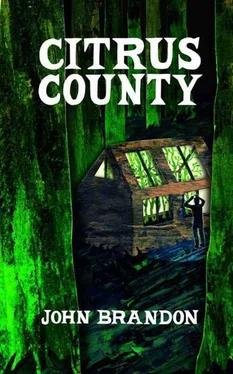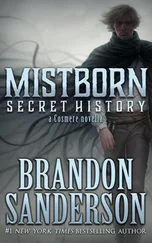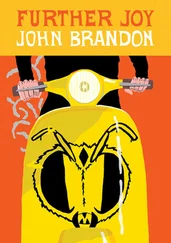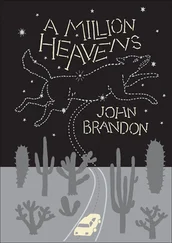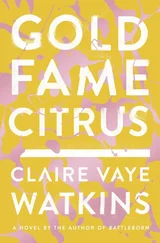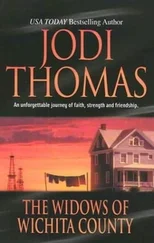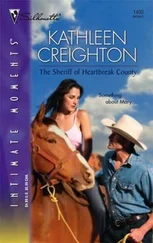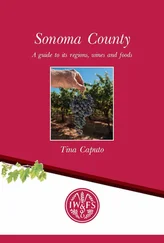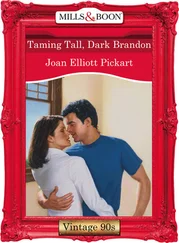“Tails,” the Asian kid called.
Up went the coin and down it fell. “Tails it is,” said the official. He picked up the coin and ambled off.
Toby took his three tries, not clearing more than eight feet, while his opponent serenely ate a container of cut melon.
Toby rode the bus back to school then walked home through the woods, passing close to Shelby’s house. The night he’d taken Kaley seemed distant, like a part of history. All the secrecy and intrigue had staled. Toby no longer got a charge from seeing an old man wearing those gray Velcro sneakers. Thinking about Kaley while he was at school didn’t buoy him, didn’t make him feel important. He wondered what he ever thought was special about her. She was fussy and messy and even without an appetite she managed to burn through food by leaving the containers open. She spilled half the water Toby brought down there. She was starting to smell in a way Toby couldn’t wash off. Toby still hadn’t uttered a word to her. If he did, it would be to yell at her.
When Toby got to the house he went in his room and took out his mother’s hand mirror. He’d told Shelby the truth when he said he had no pictures of his mother, but he had the mirror and that was all he needed. It had a faded, oriental-looking pattern on it. Its weight always surprised Toby. It felt good to hold. He squeezed it by the handle, cooling his palm. Toby sat on his bed, keeping his head stationary and angling the mirror so as to examine the corners of his room. He wondered if his mother had ever used the mirror, if she’d held the mirror in one hand and a brush in the other and sat erect on a chair near a window, if she’d left the mirror on a stand near her front door and checked her makeup in it. Toby doubted it. It had been a gift, probably, from someone not very dear. It had collected dust over and over and been wiped clean over and over. It had been unwanted, but too nice to throw out.
Toby forced himself to stand. He put the mirror back on the shelf and went outside, headed for a little gas station that mostly sold cigarettes and beer and lottery tickets. It was night. The wind singing in the tops of the pine trees irritated Toby.
At the gas station, he loaded up on junk food — packaged cakes full of creams and custards, cookies, candy bars. Kaley had to eat something . She didn’t like fish sticks or chicken patties or apples. Her cheeks weren’t plump anymore and you could see her spine right through her shirt. He had to give in and let her have soda too. She wasn’t drinking water.
Toby had to keep lugging the generator back and forth. He had to keep washing Kaley’s bedding and emptying her buckets. She wasn’t the least bit afraid of him. She could sleep. She wore that shrewd look, seeing through the dimness like a cat. The bunker smelled like Kaley and Kaley smelled like the bunker. The bunker was becoming her home, Toby a visitor.
Shelby wore yellow rubber gloves. She’d lathered up the bathtub, had bleach and glass cleaner and some brand-new sponges. She was resting, sitting on the toilet bowl. She had already vacuumed all the carpets in the house, dusted the tables and dressers. She didn’t feel like they’d lived here long enough for it to get dusty. It had been someone else’s dust, the previous owners’ dust. Shelby arched her back to make her spine crack, relishing the scouring, chemical air.
She had a little radio with her, tuned to an AM station on which a very old man was relating stories about the past. Shelby felt like she was the only person listening to the station, like the old man was talking only to her, but she supposed that was how everyone felt. The old man was speaking about the establishment of the first national parks, about how men in need of work had come from all over the country to blaze trails and put in signs and build ranger stations. There were no commercials. When the old man went to pee, you had to wait for him to come back.
Shelby wondered if she was sanitizing the bathroom of Kaley. Shelby had given Kaley a hundred baths in here. She was scrubbing the last traces of her sister out of this room. She ought to be doing something constructive, like homework or like cooking or maybe exercising, but those things seemed so difficult. They required so much faith. Shelby felt comfortable on the hard, flat cover of the commode. She wished her father wouldn’t come home, that night wouldn’t fall. She could stay where she was and think of her sister calmly and honestly — just think of Kaley , not about whether or not Kaley was with them, whether she was gone forever. Kaley was not like other kids. It was a fact. She wasn’t like other people. Kaley never held onto anything, not grudges or promises. It was a type of toughness Shelby did not possess. Kaley could forgive. She was a person who could forgive the world and forgive the people closest to her.
The old man on the radio cleared his throat and broke it to his listeners that it was time for him to wash up for supper. Shelby heard his chair creak and then the swishing sound of his slacks.
The porch. Uncle Neal had his generator out, testing it — the same brand as Toby’s, but bigger. Uncle Neal had examined the roof, he told Toby, and stocked canned goods. Hurricane season was around the corner again.
“Maybe this is the year,” Toby said.
“This place ain’t worth a hurricane’s time. I’m doing this stuff because it’s the kind of stuff I like to do.”
“Preparing?” said Toby.
“No, wasting time. I like to waste time.” Uncle Neal massaged his nose and snorted, trying to dislodge something. “I made a to-do list, that way I can waste the whole day.”
A stinkbug landed on Toby’s thumb and he carefully brushed it away.
“I’ve been meaning to ask you if you got a tapeworm, because we need to get to the doc and get rid of it before I’m out of house and home.”
Toby shook his head.
“We’ve been going through snacks and drinks like I-don’t-know-what.”
“I’m growing,” said Toby.
“Going through toilet paper too. I guess the two go hand in hand.”
“Maybe I do,” said Toby. “Maybe I have a worm.”
“I think I lost my to-do list,” Uncle Neal said. “I’m going to sit in my rocking chair until it turns up. If you go in, bring me one of those cloves.”
Toby went in and choked down a few cold nuggets. He spotted a pack of black cigarettes and assumed these were the cloves. He pulled one out, went back to the porch, set himself up in a low chair, then passed the clove to his uncle, who pulled a match from somewhere and struck it on the porch floor.
“Think I’ll make it to hurricane season?” he asked.
Toby looked out in front of him, at nothing.
“I’d say it’s a coin flip.” Uncle Neal held his clove away from his face. “Did you grab the mail?”
“I didn’t.”
“I’m watching for the county newsletter. They’re trying to put in a putt-putt on Route 50. I’m going to speak against it.”
“Do you mind if I smoke one of those?” Toby asked.
“I won’t stop you.”
Toby fetched the rest of the cloves. When he returned to the porch, Uncle Neal struck another match and held it out toward Toby. The smoke was bluish. It filled Toby’s skull and sat in there. As soon as Toby had his clove going good, Uncle Neal looked at the one he was smoking, a dreary expression on his face.
“On second thought, let’s put these out,” he said. “This isn’t the mood for clove smoking. Cloves are for when you’re worn out but hopeful.”
Uncle Neal blew most of the burning ember off his clove, then tamped it out patiently on his knuckle. One of his knuckles was gnarled.
“I guess we’re not too hopeful,” Toby said.
Читать дальше
